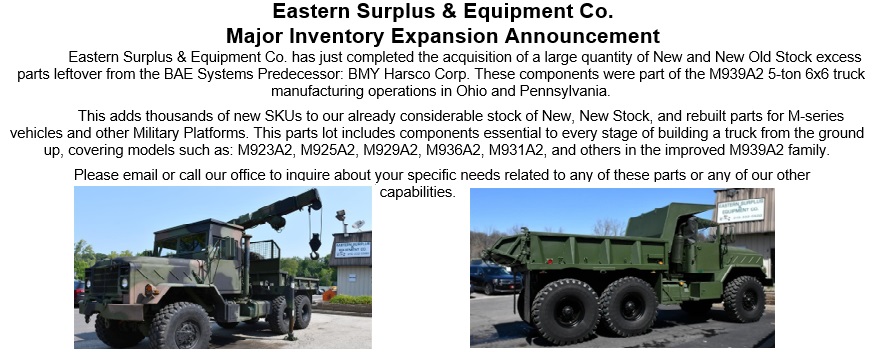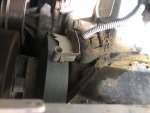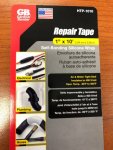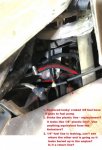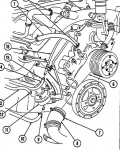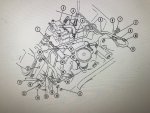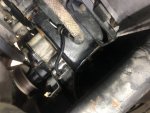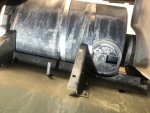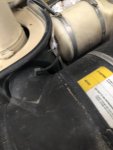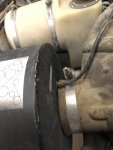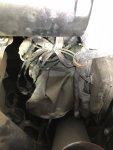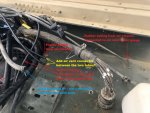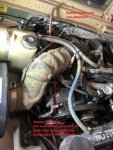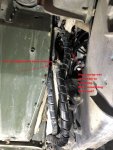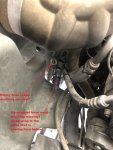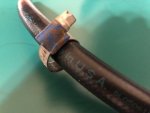T9000
Well-known member
- 489
- 370
- 63
- Location
- California
Hi, I am back in the trenches, hope everyone had a good Thanksgiving!
I believe that I found the check valves, in front of the fuel tank, under rear passenger, like you said:
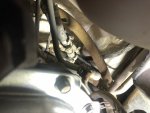
I also replaced the fuel filter and water separator and replaced the short 3/8" hose connected to the fuel pump, it had a crack and it was leaking. There is another 1/4" fuel hose that is leaking at the connector, but some it may come from higher up in the engine. Is this a return line? It's hard to tell where it goes and how to get to it in order to replace it, please see attached picture:
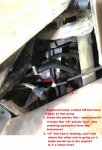
(picture before cleaning and replacing - shows the leaking)
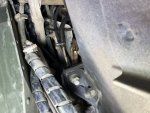
In the process I broke the 1/8" plastic line, which presume it is not critical like the diesel hose (found Gates Barricade rated R14 at 225PSI at O'Reilly - 27339 = 1/4" I.D. and 27341 = 3/8" I.D. - the fuel hose I took out was R7.
I believe that I found the check valves, in front of the fuel tank, under rear passenger, like you said:

I also replaced the fuel filter and water separator and replaced the short 3/8" hose connected to the fuel pump, it had a crack and it was leaking. There is another 1/4" fuel hose that is leaking at the connector, but some it may come from higher up in the engine. Is this a return line? It's hard to tell where it goes and how to get to it in order to replace it, please see attached picture:

(picture before cleaning and replacing - shows the leaking)

In the process I broke the 1/8" plastic line, which presume it is not critical like the diesel hose (found Gates Barricade rated R14 at 225PSI at O'Reilly - 27339 = 1/4" I.D. and 27341 = 3/8" I.D. - the fuel hose I took out was R7.
Last edited:

